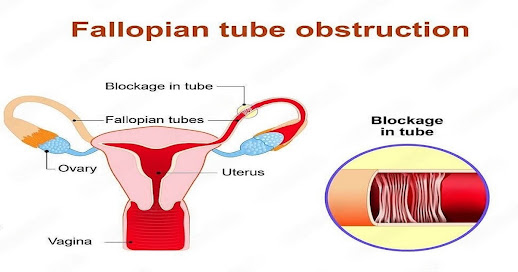Dealing with Tubal Blockage while Trying to Conceive?
There are many emotions that only a woman may comprehend when carrying and holding her unborn child in her arms. Every woman wants to feel this emotion, yet some are unable to get pregnant naturally for a variety of medical conditions.
Tubal factors are the root cause of infertility in approximately 10-12% of the couples that contact Dr. Rama Sofat Hospital.
The condition known as tubal factor infertility occurs when a woman's fallopian tube is obstructed, which prevents the egg and sperm from being fertilised.
As a result, the blocked fallopian tube inhibits sperm and, in many cases, embryos from reaching the uterus to get fertilised.
On either side of the uterus, there is a fallopian tube that connects it.
Sometimes the obstruction is minor, allowing only the sperm to pass through to the uterus but preventing the embryo from doing so.
An embryo can be picked up, transported, fertilised, and implanted in the uterus from the fallopian tube with adequate tubal function.
Unlike to disorders like PCOS (polycystic ovarian syndrome) or premature ovarian failure, which have identifiable symptoms, tubal causes infertility symptoms are difficult to identify.
Unless there is water buildup in the tube that is clearly seen on ultrasound and raises the possibility of a tubal aetiology, there are typically no symptoms.
In the majority of instances, hysterosalpingography is used as the primary investigation for the diagnosis of tubal factor infertility.
- The dye flows into the fallopian tubes if they are open, then pours out into the abdominal cavity.
- Yet, just when this test reveals that the fallopian tubes are open doesn't necessarily imply that tubal activity is healthy. Even when the fallopian tube is open and dye leaks into the abdominal cavity on the HSG, the inner lining of the tube might still sustain significant harm.
- Several patients have tubes that are functionally intact despite the fact that they are patent in testing for tubal patency. The diagnosis of patent non-functional tubes is challenging.
- Scarred yet open tubes are unable to carry out the essential tasks required to establish a healthy pregnancy.
- Risk factors include T.B., pelvic infections, and prior abdominal and pelvic procedures.
- Infections, which can be brought on by STIs, are one of the key factors in tubal factor infertility.
- Tubal factor infertility can also be caused by other causes including endometriosis, in which tissue grows outside the uterus, or any prior surgeries a woman has had.
- The fallopian tube is frequently harmed in PID (pelvic inflammatory illness), where the female reproductive organs are contaminated.
- Untrained workers and a history of terminating undesired pregnancies are increasingly becoming major problems.
For any #Infertility related #queries feel free to
contact us at : +91-78378-00300 , +91-98147-04714
or visit us at :
Dr. Rama Sofat Hospital
435, College Road, Civil Lines, Ludhiana, Punjab 141001
 Reviewed by Dr Rama Sofat Hospital
on
3:54 PM
Rating:
Reviewed by Dr Rama Sofat Hospital
on
3:54 PM
Rating:







No comments: